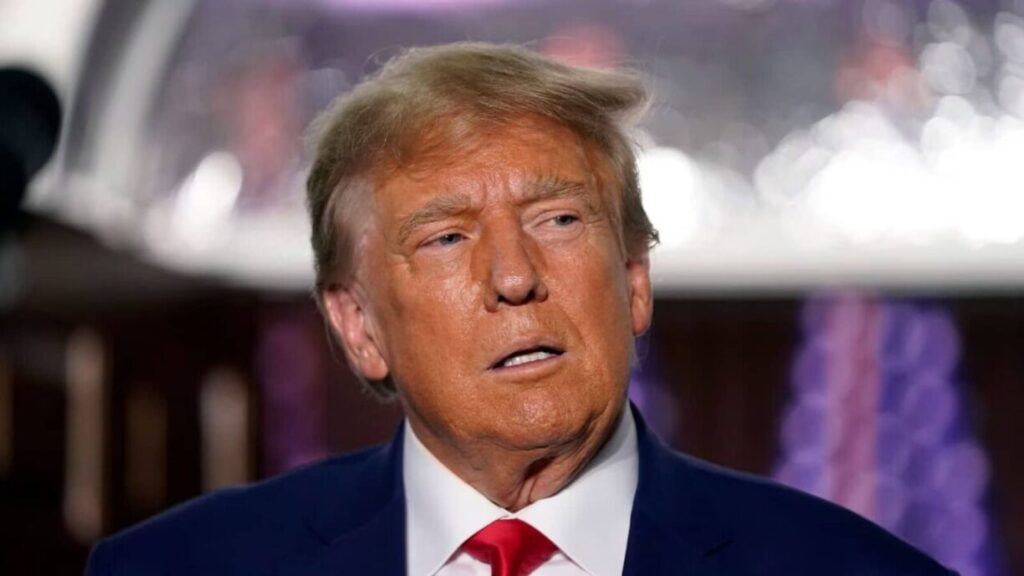Several of the reasons why residents of Silicon Valley joined the Trump train were made clear by Donald Trump’s speech at the RNC.

The speech delivered by former President Donald Trump at the Republican National Convention (RNC) provided a subtle indication of his prospective willingness to embrace the technology sector. During his 90-minute speech, he spoke only a few words. If you closed your eyes, you would have missed it. However, they were significant. “America is on the brink of a new golden age,” Trump stated, “but we will have the fortitude to seize it.”
The “e/acc” community, a tech-focused movement that Marc Andreessen and Gary Tan have embraced, took notice. The anonymous social media user “@BasedBeffJezos,” one of the movement’s architects, shared a video of Trump’s remarks and asked his followers, “Can you feel the acceleration anon?”
There is one certainty. The Republican Party is in favor of Bitcoin (BTC). After meeting with industry representatives earlier this summer, Trump expressed his desire for all future Bitcoin to be mined in the United States. According to the official Republican platform, the party “will end the unlawful and un-American Crypto crackdown by the Democrats and will oppose the establishment of a Central Bank Digital Currency.” We will protect the right to mine Bitcoin and guarantee that every American can self-control their digital assets and conduct transactions without government oversight.
J.D. Vance, the party’s newly nominated vice presidential candidate, is a Bitcoin-holding skeptic of the Securities and Exchange Commission who has publicly criticized Chairman Gary Gensler’s approach to blockchain and crypto as “almost the exact opposite of what it should be.” As if this were not sufficient to convey the message,
Trump’s enthusiasm for cryptocurrency is expected to intensify as he prepares to serve as the keynote speaker at the Bitcoin 2024 Conference in Nashville on July 27.
Nevertheless, it is yet to be determined whether this will result in a more comprehensive adoption of permissionless innovation in the context of emerging technologies.
There are valid reasons for optimism. The party is prepared to embrace the potential of artificial intelligence for our economy and society. The Republican Party has incorporated it as a critical component of its platform, pledging to repeal the AI executive order issued by the Biden administration and to support AI development founded on human flourishing and free speech.
Donald Trump even appeared to be in awe of AI, briefly mentioning it in his nomination speech and emphasizing the significance of not allowing domestic AI concerns to impede the United States’ role in molding the technology for the world.
Also embracing technologies such as AI are organizations such as the America First Policy Institute (AFPI) and the Heritage Foundation, which are not affiliated with the official party structure but compete to influence a potential second Trump administration. AFPI, for instance, is purportedly developing a framework to establish the United States as a leader in artificial intelligence. Heritage’s “Project 2025” underscores the significance of AI technologies in detecting waste, fraud, and abuse in government spending and enforcing international trade agreements, in addition to their development.
Additionally, there are causes for concern. It is unclear how this could translate into specifics regarding technology in the United States, despite the potential significance of a crypto/AI-friendly White House.
Autonomous vehicles are the application of artificial intelligence to automobiles. Although the Republican Party favors artificial intelligence, the issue of autonomous vehicles is quite complex. Tucker Carlson and Sean O’Brien were both granted the opportunity to address the Republican National Convention. Carlson declared that he would prohibit autonomous vehicles “immediately” and that, if elected president, “we will not permit driverless trucks to operate on public roads.”
O’Brien, the president of the Teamsters Union, has lobbied for the prohibition of autonomous vehicles throughout the country and has advocated for federal regulations that mandate the presence of a human with a commercial driver’s license in autonomous trucks at all times.
Despite the criticisms Vance has leveled at Gary Gensler, he has also expressed his admiration for Lina Khan, the chief of the Federal Trade Commission (FTC).
In fact, during the same speech in which he criticized Gensler’s approach to crypto and blockchain, he also stated that Kahn is “one of the few individuals in the Biden administration that I believe is doing a pretty good job.” Also, what has she accomplished?
She has outlined the most aggressive regulatory approach to AI in the Biden administration and has thwarted nearly every tech merger she could. Additionally, she continues to advance tenuous legal theories that will ultimately undermine the “new golden age” that Trump envisions for our future.
Is this a cause for concern? Silicon Valley maintains that this is not the case. The Republican nominee has garnered the support of a who’s who of tech luminaries.
Although there is much to be optimistic about, it is premature to predict that the White House will advocate for permissionless innovation with enthusiasm. At present, cryptocurrency has the potential to emerge from the shadows. Innovators of all backgrounds will also be able to discover a solution.
